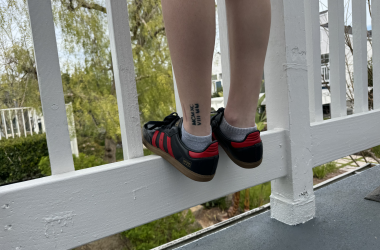I may have been around five years old when I realized that I hated Thanksgiving. Perhaps it was the solemness of it all—my ultra-Catholic grandmother making every single one of us go around the dinner table to say a prayer and express our gratitude for something—or perhaps it was me, as a picky eater, eating only the macaroni and bolillos.
This I remember, but what I can’t recall is what age I was when I learned about Thanksgiving For Real, though it may have been around middle school. From that point on, there was something gruesome about the irony in seeing younger kids being let out of school with their Indian and pilgrim crafts they made in class, already bent with careless excitement.
I felt this dissonance even before I became more familiar with my Native heritage. Although I always knew my family was Native American, it wasn’t until my grandma, in her old age, began recounting family stories and history to me.
I became an after school teacher for kindergartners in a school in El Monte four years ago when I was 20. When Thanksgiving came around, I refused to let my impressionable students sit down and get artsy with crafts that narrated a lie as we did in elementary school. I didn’t have a single white student in that class and considering their ancestors very likely suffered from Thanksgiving For Real as well, I felt it was my responsibility as an educator to not engage them in a lie the same way my generation was. Instead we made turkey cut-outs of our hands with multicolored feathers expressing who or what we were thankful for.
Around this time I was driving to Pasadena one day with my mother and brother, and my mom said she wished she’d taken us to missions more when we were younger like she had. I replied with some sarcastic remark about oppression, conversion and our own heritage. To me, the missions symbolized what the arts and crafts in elementary school did: glorification of a holiday that quite literally earmarked genocide and murder.
My mom was genuinely confused with my remark and for good reason—no teacher in her generation was teaching their students about Thanksgiving For Real, not in Pico Rivera in the ‘70s, and my grandma had never opened up much about where our family came from to begin with. When my brother and I explained it to her, she was quiet for a moment—not offended—and then said, “I’d never thought of it that way.” This, coming from a woman of Native descent, unfamiliar with her own history that was nearly lost had it not been for oral history. This incident made me feel even more confident in my decision to not misinform or mislead my own students about Thanksgiving’s history
As COVID-19 has overstayed its visit in our lives deep into 2020, I’ve also learned more about my heritage. I’ve spent more time talking to that same ultra-Catholic grandmother, native to this country, about where exactly we come from. She’s 89 years old and, when you let her talk about her past, she will tell you all about growing up on a farm in El Paso. She will tell you all about her grandfather, who moved to the boondocks of Texas from a reservation in New Mexico once he married my grandma’s grandmother.
My favorite story though is when she tells me about visiting her grandfather for the first time in his home in the outskirts of El Paso, near the Rio Grande. Although he was blind by the time she met him, he could tell she was a little girl and what age she was just by her footsteps.
“He was spooky like that, like how Indians are,” she will tell me. Then she will get into trying to explain the other senses we’ve inherited from having this blood in us, senses that amplify the existing five ones we already have. Being able to smell the rain before the clouds roll in, for one, or hearing another presence enter the room without someone ever having to make a sound.
Perhaps this is the same sense I had as a kid, dreading Thanksgiving as though my blood knew. And, although it’s been years since I stood in a classroom as an educator, I can only hope a new generation of teachers will quietly rebel as I did and refuse to to turn genocide into an arts and crafts project.




